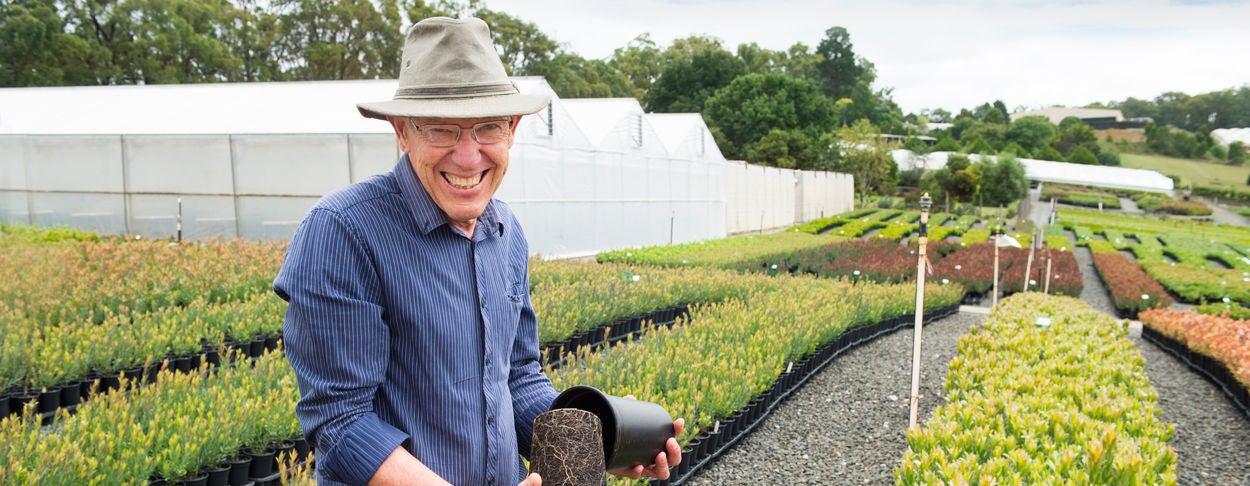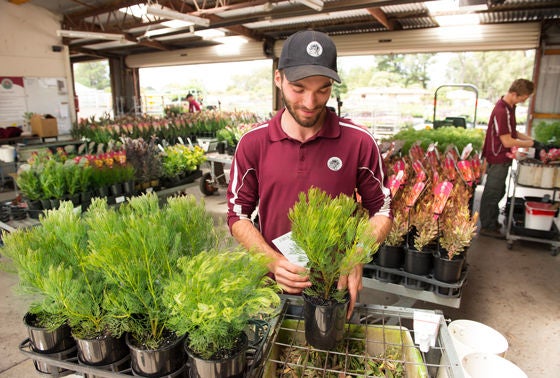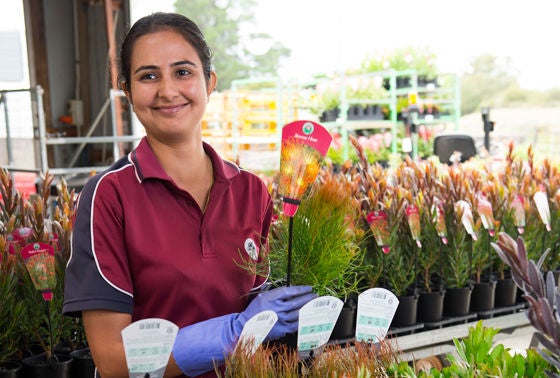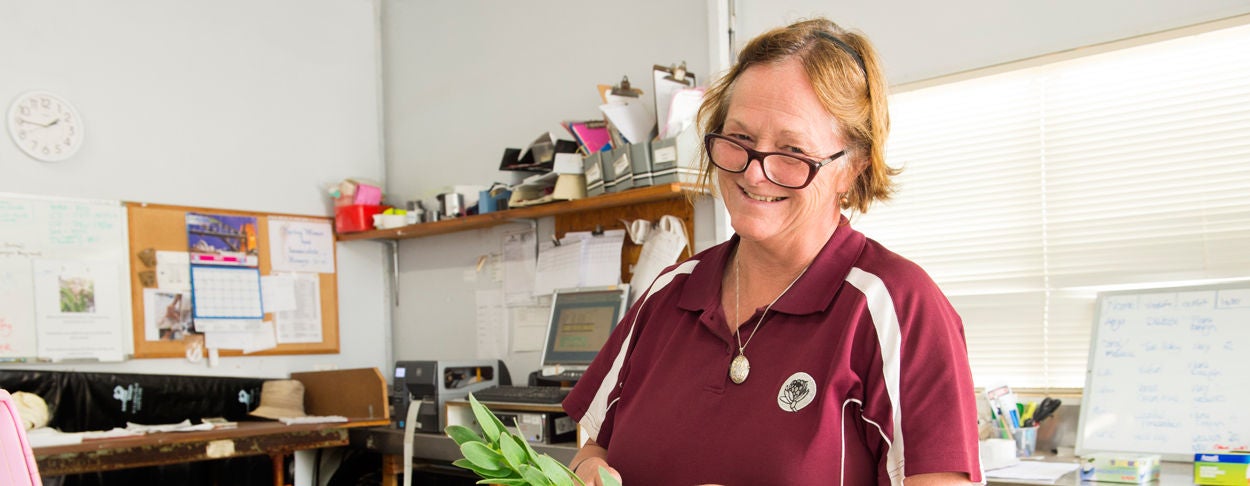Posted by on
13/02/2017
David Mathews of Proteaflora, the largest Protea nursery in Australia says his family fell into growing Proteas almost by accident.
“My father Peter had retired and took up growing Proteas for cut flowers in the mid-1970s,” he said. “However, he was never one to just dabble in things and once he started to grow them he decided they were so good that everyone should be growing them and the business evolved from there.”
David and his wife Ilse had been running Proteaflora’s South Australian nursery when Peter announced plans to move away from the business, so they relocated to take over the running of the Melbourne-based nursery along with David’s brother Andrew.
“At the time the business was made up of around 20 per cent cut flowers and 80 per cent nursery, over the next five years we ended up phasing out the cut flowers side of the business,” David said. “We’ve grown the nursery substantially over the years to a point where we are now producing around 500,000 plants annually.”
The Proteaflora team has 70 varieties that they grow on five hectares and along with this they have a number of partner nurseries that they work with. “We propagate the plants and send the small seedlings off to our partner nurseries in both Western Australia and Queensland,” David said.
“We also have partner nurseries in Italy, South Africa and Japan who propagate and supply our varieties to their respective markets.”

Proteaflora is currently looking to break into the California market as the Protea is well suited to withstand the droughts that the State has suffered over recent years. “The Proteaceae family are ideally suited to harsh, dry conditions,” David said.
“When there is a drought on, we tend to see a spike in sales, but otherwise there continues to be solid consistent demand. “We spend a lot of time talking with customers and landscapers about the different varieties and they appeal to people who want to add colour to a modern design garden.”
While there are so many different varieties of Proteas, David does have his favourites. “I’ve always loved the King Protea because it is so big and bold and beautiful,” he said.
“There are two varieties that I like to recommend to people growing Proteaceae for the first time."
“The first is Little Prince, which is a miniature version of the King Protea, it grows most places and is also suitable as a long term flowering pot plant."
“The other is Pink Ice, which is one of the varieties that my father bred and is by far the hardiest of all the Proteaceae I’ve seen, it is now grown all over the world.”
Plant breeding continues to be a large part of the Proteaflora business and they have Plant Breeders Rights on 10 varieties and have 18 under Registered Trademark. “We have bred some excellent varieties over the past 40 years sourcing materials from Australia, South Africa, New Zealand and through a relationship with the University of Hawaii.

“With so many varieties under our belt now we are in a fortunate position where we can take a look at focussing our portfolio. “I’d expect that over the next five years we’ll likely reduce the number of varieties we’re producing and focus on those that work really well for our customers.”
David is committed to continuous re-evaluation of the Proteaflora business and he credits this commitment in part to what he learned at Rabobank’s Executive Development Program (EDP).
“I attended the EDP in 2005 and it really forced us to be a lot more rigorous in in terms of how we approached our financials and evaluated projects,”
“It also opened our eyes to the possibility of increasing profitability without increasing size. “Those few factors have contributed hugely to our business.
“More generally the EDP was the best post Tertiary training I’ve done. It was academically rigorous and it was real, everything we learned was highly applicable and the presenters were practitioners rather than theorists."
“There was also the added benefit of mixing with such a diverse and amazing bunch of farmers on the course.”
David attended the EDP almost a decade before he brought the Proteaflora business across to Rabobank but admits that it was not a hard decision to make. “At the time of the EDP I was absolutely super impressed with what Rabobank had to offer, I’ve only continued to be more impressed since we began doing business together,” he said.
“While Rabobank has all the facilities you would expect from any bank, what makes it special is the relationship you have with their staff, it’s their interest in our business and their ability to add value that I expect will keep me with the bank for many years to come.”

